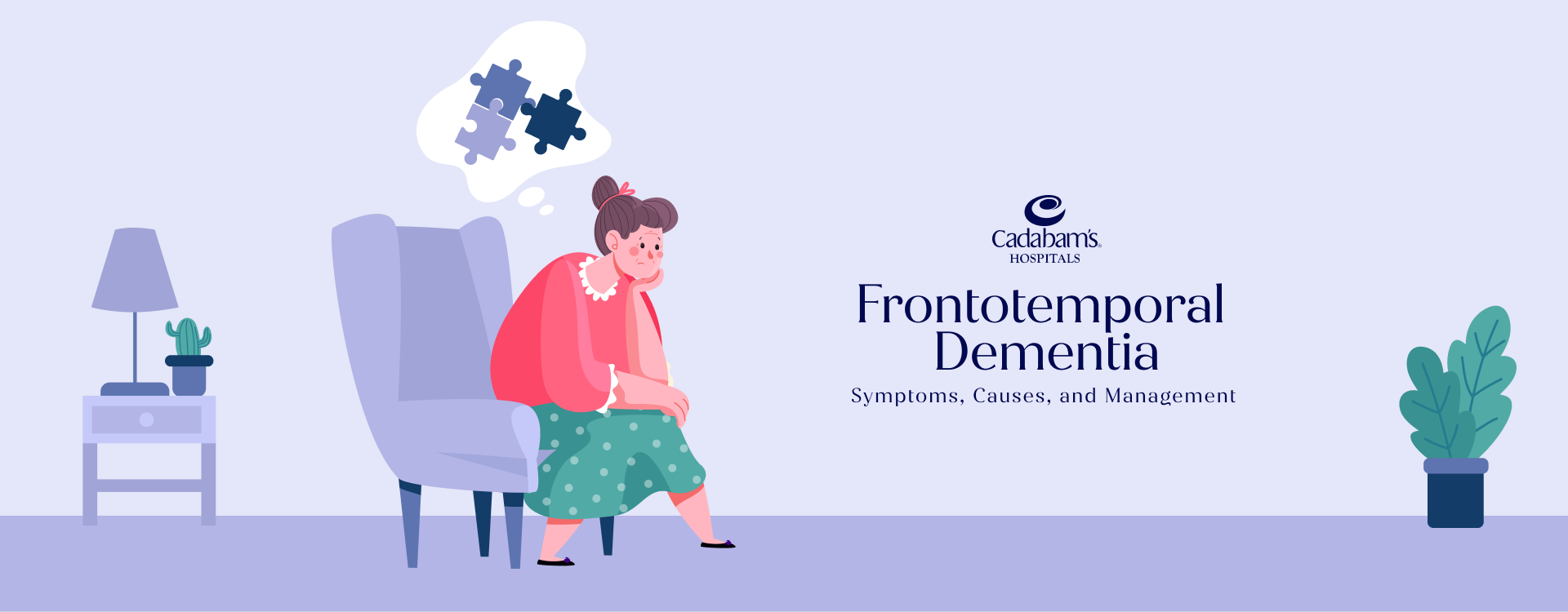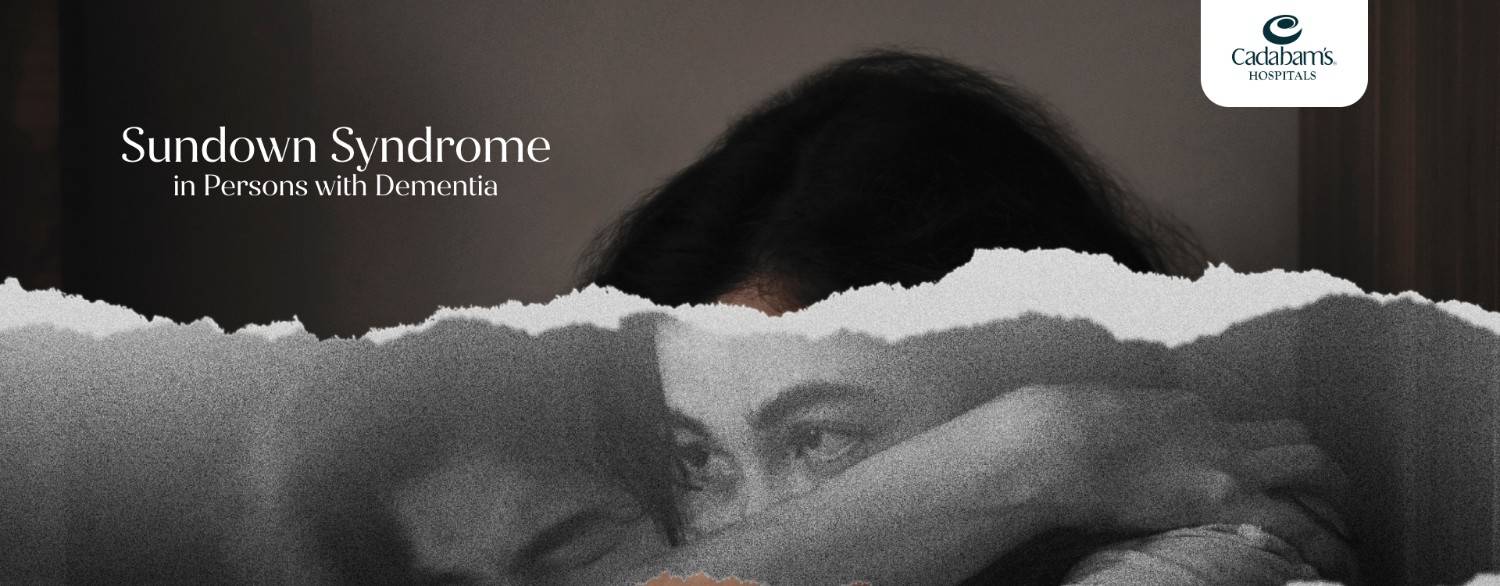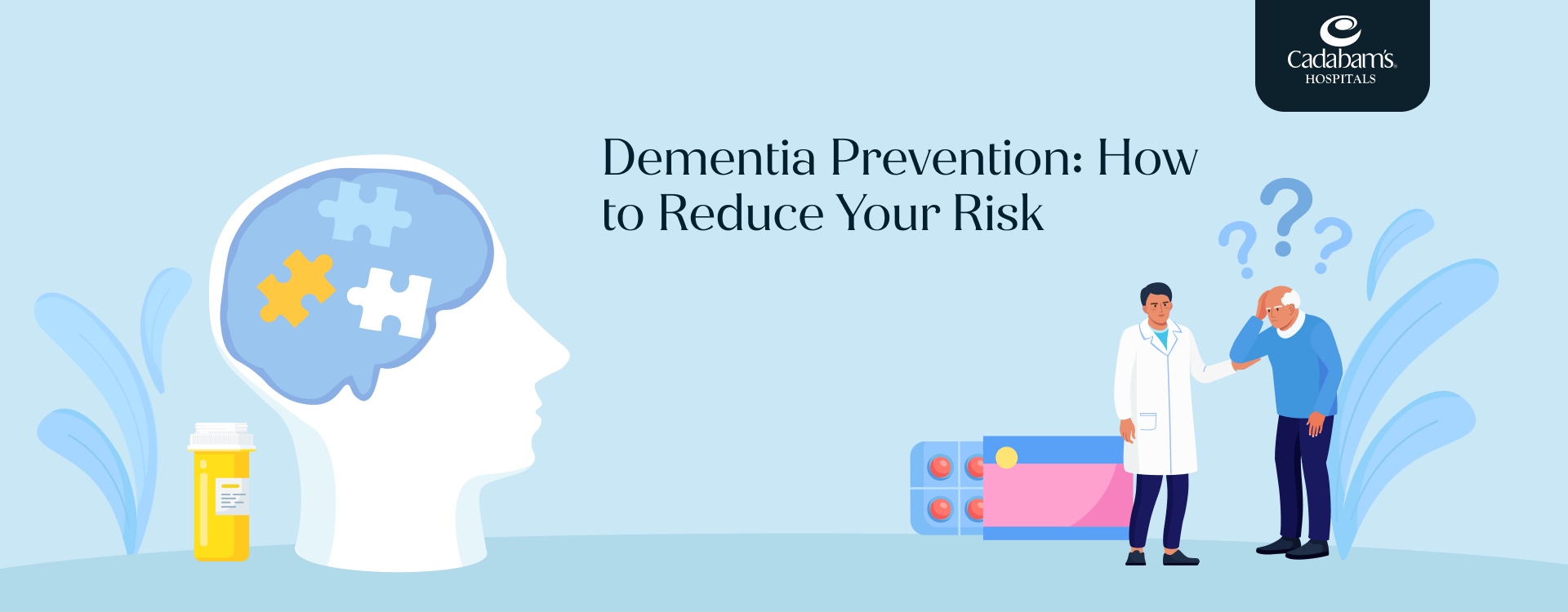What is Dementia?
Dementia is not a specific disease. Instead, it is an overall umbrella term describing a wide range of symptoms associated with a decrease in thinking skills and memory, such as memory loss, difficulties with thinking, problem-solving, and language—severe
to be able to stop a person’s ability from being able to go about doing their everyday tasks.
According to the research studies, about 5-8% of the world’s population, aged between 65 and 74 years and half of the people aged above 80 have some type of dementia. It is estimated that the number of people being diagnosed with such a debilitating disorder is increasing.
Hence, gaining an in-depth knowledge about the illness, such as what signs to look for, dementia causes, types and information about dementia treatment can help in early interventions.
Dementia vs. Normal Aging
Normal ageing isn’t the same thing as dementia. There are certain signs that are associated with old age, such as weakening bones and muscular functions, stiffening of arteries and the odd memory-related problem.
However, knowledge, experience and memories gathered over the years remain intact. Dementia involves a more significant loss of memory, language, and problem-solving abilities that disrupt daily life.
Different Types of Dementia
Dementia is a broad umbrella term for many disorders, and the subtypes include:
Alzheimer’s Disease
Alzheimer’s disease accounts for most of the cases, ranging from 60–80% of all cases. Old memories get lost over time, and there is trouble remembering recent memories.
Difficulty with walking, talking, and even personality changes come with dementia.
Vascular Dementia
Dementia can be associated with conditions such as strokes and other such issues, such as high blood pressure, high cholesterol, and diabetes. The symptoms get worse suddenly, and the person might end up getting smaller strokes before a major one.
Lewy Body Dementia
In this kind of dementia, movement, and balance problems also are seen—along with the more common symptoms of memory loss. A lot of people are seen to feel sleepy during the day, confused, and have staring spells. They also can have sleeping troubles or even hallucinate.
Frontotemporal Dementia
Personality and behavioural changes are associated with this type of dementia. In this condition people embarrass themselves and behave out of social conditions and inappropriately. There may be issues with language, speaking, and comprehension.
Common Dementia Symptoms & Signs
There are usually some signs that one can look out for when you or a loved one could be experiencing dementia, such as:
Early Warning Signs of Dementia
Sometimes, there are some early warning signs which can show up. Here are some things to be concerned about:
Memory Loss That Disrupts Daily Life
There is a certain level of memory loss associated with old age; however, this is not the same as the one associated with dementia.
If it has come to the point where one is not able to function as well as one could have and can’t do basic tasks because they have forgotten how to do it, then it is a concern.
Challenges in Planning or Solving Problems
One may face problems with planning things, which was never a problem before—or even to solve problems that they were able to solve before—then it can be something that needs to be looked into. This is a sign of early brain degeneration.
Difficulty Completing Familiar Tasks
Regular day tasks, such as changing clothes, bathing, eating, and walking are part of everyday routines for everyone.
A little help with old age is normal, but if they aren’t able to do basic functions by themselves, it is a sign to get it checked out.
Confusion with Time or Place
Another warning sign of dementia can be confusing things like place and time—associated with short term memory.
A little forgetfulness is fine and is normal, but if they seem to be forgetting things they said or did a couple of hours ago, then it is a matter of concern.
Trouble Understanding Visual Images and Spatial Relationships
Visual images and cues that were once familiar, if not recognisable, are something to be concerned about. Spatiality which was once familiar, if now is not, could be an early sign of dementia.
Psychological Changes
Some experience certain early psychological signs as well, such as:
Shifts in Personality
The personality of the individual is likely to change as their brain functioning slowly starts crumbling. They may become angry and frustrated because they cannot follow what is going on.
Experiencing Depression
Due to the complexities involved in diagnosing depression in someone with Alzheimer’s, it may be helpful to consult a geriatric psychiatrist. It can be particularly tough, especially if cognitive skills have already dropped.
Feelings of Anxiety
In these early stages, feelings of agitation and anxiety are apparent. People start to recognize the losses and understand how serious the disease really is.
It also later manifests as anxiety about being left alone and even abandoned? Changes in one’s daily routine may also trigger anxiety. Learn more about the main causes of agitation and how to manage them.
Increased Restlessness
A person with dementia may feel agitated or irritable, fidget, tap their fingers or make other repetitive movements. They may move objects around and fixate on tasks related to cleaning and tidying up. They may also engage with a lot of walking around.
Conduct Deemed Inappropriate
In certain cases, the person may engage in conduct that is inappropriate, which people around them might find challenging.
They might be different in how they approach the topic of sex, behave inappropriately, sexually aggressively, behave sexually in public, or even mistake people for other people.
Development of Suspiciousness, or Paranoia
Paranoia is often linked with memory loss, and it may worsen with the loss of memory.
Experiencing Visual Hallucinations
Hallucinations can also come along with Alzheimer’s. This may include other physical illnesses, such as fevers, migraines, infections, and strokes.
Progression of Symptoms: Understanding Dementia Stages
Since it is a degenerative disease, it usually gets worse with time. There are certain signs to look out for if you or a loved one is going through the stages, as it were.
Mild Dementia
In mild cases, there will barely be any difference noticeable, but brain reports may reveal a problem. They will mostly still be independent, but eventually, their thinking and reasoning skills will deteriorate.
Moderate Dementia
This phase is associated with remembering recent events, and troubles making plans. Travel can also become tough, and so is handling themselves.
They may be confused about the time of day or day of the week. At this point, they might need assistance with some basic day-to-day functions.
Severe Dementia
This phase is characterised by them forgetting the names of significant people in their lives, such as a partner. They require aid to visit the restroom, and even eating can become a task.
Their personality also changes. In really bad cases, they will not be able to walk and will spend most of their time in bed.
Causes of Dementia
Damage or loss of nerve cells along with their connections to the brain is the causative factor for dementia. Dementia affects different people differently.
Primary Causes of Dementia
There are some primary causes of dementia, which include:
Neurodegenerative Diseases
Alzheirmer’s, Parkinson’s, and Huntington’s, as well as some types of multiple sclerosis, are examples of neurodegenerative diseases. They typically worsen over time and need to be tended to as soon as possible.
Vascular Factors
The blood circulation in the body can be affected by long-term alcohol or drug use—it is the brain that gets affected.
Injuries and Trauma
Traumatic brain injuries, as well as central nervous system infections such as HIV, Creutzfeldt-Jakob disease, and meningitis, are considerable examples of injuries and trauma. was to get affected
Reversible Causes of Dementia
Some reversible dementia causes include:
- Alcohol or substance use disorder
- Tumours
- Hypoglycemia, or low blood sugar
- Hypothyroidism, or low thyroid levels
- A fluid buildup in the brain
- Blood clots in the covering of the brain
- Vitamin B12 deficiency
Genetic Influences
If one has a direct blood relative (a parent, a grandparent, or a sibling), then one is likely to be in line to get dementia. Around 5–8% of older adults above the age of 65 are likely to have dementia in some form or another.
The percentage may also double every five years. Half the people, when they reach 80, will have some form of dementia.
Risk Factors of Dementia
There are some risk factors which are linked with dementia, such as:
Age-Related Risks of Dementia
There is a risk of dementia to develop with age, particularly after 65. The neurological functioning of the brain naturally diminishes with age.
Lifestyle and Environmental Risk Factors
A good diet and a good exercise regimen are key to keeping a lot of symptoms in control. Taking care of your heart is also an essential part, as is not eating too much junk and oily foods.
Substances like drugs and alcohol could be avoided, and that will be helpful in prevention of dementia
Other Contributing Factors of Dementia
Mental health issues, which can be comorbid factors alongside dementia, can trigger it as well.
Strokes, cancer, heart disease, diabetes, arthritis, and other such chronic diseases also add to the body’s malfunction. Sleep disorders also can affect dementia.
Dementia Diagnosis Process
Dementia can be quite a complicated process, which will most likely include the following:
Initial Assessment and History Review
The doctor will assess the situation—the patient’s case history will be taken and analysed. Someone who is close to the patient may be asked about their symptoms as well.
Cognitive and Neuropsychological Testing
Tests measuring attention, thinking skills, orientation, memory, reasoning, language ability, judgment ,visual perception, problem-solving skills, movement, senses, balance, reflexes and other areas are evaluated as well.
Advanced Diagnostic Testing
CT scans or MRIs can check for evidence of stroke, bleeding, tumour, or fluid buildup, known as hydrocephalus.
Patterns of brain activity are seen via PET scans, which can tell whether tau protein or amyloid is present—hallmarks of Alzheimer’s.
Criteria for Diagnosing Dementia
The criteria for diagnosing dementia are impairment in memory plus impairment in one more contrive function—such as apraxia, aphasia, agnosia, or problems with executive functioning
Dementia Treatment Strategies
There are ways to manage the symptoms of dementia, even though it may never be cured.
Pharmacological Treatments
There are some treatments which are used to improve symptoms of dementia. These include galantamine, donepezil, and rivastigmine, which are cholinesterase inhibitors.
Glutamate is regulated by memantine or nameda and is a chemical messenger that is involved in major brain functions, including memory and learning.
Therapy Alternatives for Managing Dementia
Several dementia symptoms and behavioural problems might be treated initially with therapies other than medicine. Some of these may include:
Cognitive Behavioral Therapy
Cognitive behavioural therapy, or CBT, has behavioural techniques that allow negative thoughts and beliefs to shift toward positive ones. It helps to treat various mood disorders such as anxiety and depression.
Since CBT requires a certain amount of introspection and reflection, it is most helpful in the earlier stages of Alzheimer’s disease.
Occupational Therapy
At its most basic, occupational therapy (OT) helps people do things they want and need to do by adapting their everyday activities.
For people with Alzheimer’s disease, this means adjusting their environment and figuring out how they can remain engaged, stay safe, and maintain quality of life.
Memory Care Programs
Memory care is an important subset of nursing home care and assisted living. The facilities usually are seen with a small staff-to-patient ratio. They are also designed to reach a specific medical, safety and social need of the people there.
Physical Exercise Regimens
Research shows that exercise can help delay cognitive decline in those with Alzheimer’s disease. Exercise may also reduce the risk of developing Alzheimer’s disease.
Music and Art Therapy
Music therapy has various aspects to it, such as singing along, listening to music, adding multisensory stimulation with music. It needs to be done with certified music therapy professionals, since they will be able to make the experience tailored to the person’s needs.
Counselling for Dementia Patients
Cognitive Behavior Therapy (CBT) can be beneficial for people with early-stage dementia. CBT focuses on the “here and now” and looks for ways to improve a person’s current situation.
If there are treatments for Dementia that you are looking for, look no further than Cadabam’s Rehabilitation Centers in Bangalore & Hyderabad. With us, it’s the easiest way to book an appointment or check on any treatment-related questions.
Social Engagement Activities
An improvement in self-esteem as well as mood can be observed by working through one’s feelings by talking to people. Acceptance and acknowledgment of the illness can also increase well-being.
Supportive Care for dementia patients and Caregiver Support
To help boost a loved one’s memory, decision making and fine motor skills one can engage in activities with them.
Support is essential when times get tough, and you will also end up getting some quality time with your loved one.
Palliative and End-of-Life Care
The purpose of this design is to ease the pain of people with serious long-term illnesses, such as dementia. It’s useful even if the person may not be at the end of their life—while hospice is designed to make the process of dying as comfortable as possible.
When to Consult a Doctor and Seek Emergency Assistance for Dementia?
There are various signs of dementia early on, but they may not be so easy to recognize. If the person affected is seen to show multiple symptoms, it is best to consult a doctor.
If you are searching for a solution to your problem, Cadabam’s Hospitals can help you with its team of specialised experts. We have been helping thousands of people live healthier and happier lives for 30+ years. We leverage evidence-based approaches and holistic treatment methods to help individuals effectively manage their Dementia. Get in touch with us today. You can call us at +91 97414 76476. You can even email us at info@cadabamshospitals.com.
Top Dementia Doctors at Cadabam’s Hospitals
Dementia – Psychiatrist in Bangalore | Dementia – Psychiatrist in Hyderabad | Dementia – Psychologist in Bangalore | Dementia – Psychologist in Hyderabad | Dementia – Therapist in Bangalore | Dementia – Therapist in Hyderabad | Dementia – Counselor in Bangalore | Dementia – Counselor in Hyderabad
Rehabilitation Centres For Dementia at Cadabam’s Hospital
Dementia – Rehab in Bangalore | Dementia – Rehab in Hyderabad
Best Dementia Treatments Offered at Cadabams
Dementia Online Counselling Bangalore | Dementia Online Counselling Hyderabad | Dementia Home Services Bangalore | Dementia Home Services Hyderabad | Dementia PsychoTherapy Hyderabad | Dementia Biofeedback Hyderabad | Dementia neuro physioTherapy Bangalore | Dementia neuro physioTherapy Hyderabad | Dementia Family Therapy Bangalore | Dementia PsychoTherapy Bangalore | Dementia CBT Hyderabad | Dementia CBT Bangalore | Dementia Group Therapy Bangalore | Dementia Emergency Bangalore | Dementia Group Therapy Hyderabad | Dementia Neurofeedback Bangalore | Dementia Neurofeedback Hyderabad | Dementia Emergency Hyderabad | Dementia Family Therapy Hyderabad | Dementia Biofeedback Bangalore | Dementia Post Rehab Bangalore | Dementia Post Rehabilitation Care Hyderabad
More Additional Resources About Dementia
Agitation in Dementia: Causes, Symptoms, and Management Guide | A Deep Dive into Behavioral and Psychological Symptoms of Dementia(BPSD) | Decoding Mixed Dementia: What You Need to Know | Parkinson’s Dementia Explained: Recognizing Symptoms and Stages | Understanding Frontotemporal Dementia: Signs, Symptoms, and More
Additional Common Questions:
1. Is Dementia a disease?
Dementia is a progressive neurological condition that affects cognitive function, memory, and daily functioning. It results from damage to the brain cells, often caused by protein build-up or reduced blood flow.
It encompasses conditions like Alzheimer’s disease, vascular dementia, Lewy body dementia, and frontotemporal dementia.
2. Is Dementia genetic?
Yes, there is a genetic aspect of dementia. If one has a direct blood relative (a parent, a grandparent, or a sibling), then one is likely to be in line to get dementia.
Around 5–8% of older adults above the age of 65 are likely to have dementia in some form or another. The percentage may also double every five years. Half the people, when they reach 80, will have some form of dementia.
3. Who does Dementia affect?
Around 5–8% of older adults above the age of 65 are likely to have dementia in some form or another. The percentage may also double every five years. Half the people, when they reach 80, will have some form of dementia.
4. How common is Dementia in India?
7.4% of Indian adults over 60 are likely to have dementia. 8.8 million people older than 60 have dementia. It’s more frequently seen in females than males and is also present more in rural areas.
5. How do you recognize Dementia symptoms in family members?
Early signs include:
- Recent memory loss (usually short-term initially)- one of the sign can include asking the same question repeatedly
- Difficulty performing familiar tasks – for example, cooking a meal or making a drink
- Language and communication problems- a difficulty with language; using wrong words or forgetting simple words/ difficulty in finding the right words
- Disorientation – getting lost on an earlier familiar street while driving or even walking
- Problems with general thinking – for instance, dealing with money.
- Misplacing things – misremembering the location of everyday items such as keys, or wallets, for example
- Mood changes – Change in emotions and behaviours. Also unexplained sudden changes in outlook
- Personality changes – irritable, fearful, suspicious
- Loss of energy – showing less interest in beginning something or going somewhere.
- Poor judgement and reasoning skills
- Inability to pay attention or focus on tasks
- A decline in visual perception.
- losing the sense of time
6. Can Dementia be treated?
While there’s no cure for dementia, treatments can help manage symptoms and slow its progression, depending on the type and stage of the condition.
Medications, therapy, lifestyle changes, and support networks play crucial roles in enhancing the quality of life for both patients and caregivers. Early detection and intervention are key in optimising treatment outcomes.














 Available
Available














